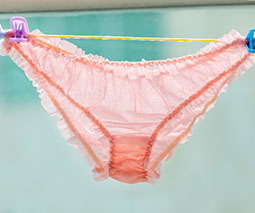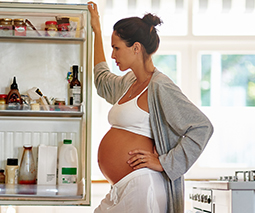6 babies a day: Inquiry to probe why stillbirth rate unchanged for decades

The rate of stillborn babies in Australia has remained unchanged for decades, and a new senate inquiry aims to look further into this terrible and complex issue – and what decisions need to be made about education and funding to prevent it.
Content note: This story discusses stillbirth and miscarriage.
Six babies a day
Six Australian babies die as a result of stillbirth every day and this new inquiry aims to get to the root causes, improve care for babies and pregnant women – and hopefully save some babies’ lives.
“The Federal Government is currently calling for submissions and will look at research and funding, noting that ‘despite significant technological and medical advances, the rate of stillborn babies in Australia has not declined in two decades’,” ABC reports.
The inquiry has been spearheaded by Labor senator Kristina Keneally and will make its first report to parliament next year.
Funds are badly needed
Former NSW Premier, Senator Keneally gave birth to a stillborn daughter, Caroline in 1999. As a patron of Stillbirth Foundation Australia, she’s been a passionate campaigner for stillbirth research and awareness.
“Six babies a day in Australia are stillborn. That is six lives lost every day in Australia,” she told parliament. “Surely, we as a nation can do better than this.”
Read more about baby loss:
- Doctors discover a cause of stillbirth – and a blood test may soon prevent it
- 9 thoughts mums struggle with when they’re pregnant again after a miscarriage
- Placenta complications in pregnancy – what you need to know
The loss of a much-hoped for baby is a devastating blow to families, but stigma surrounding stillbirth means they often suffer in silence.
“A huge amount of investment is needed in vital research to understand why such large numbers of babies are dying,” Stillbirth Foundation Australia explain, “particularly those that are born at or close to term with no known cause of death.”
This inquiry is seeking to address inadequate funding and put this pressing issue front and centre in parliament. It can’t happen soon enough.
More research, better reporting
The government is very keen to back this inquiry too, with the coalition’s front bencher Senator James McGrath telling SBS News: “This is important public health issue and we’ll work co-operatively in a bipartisan manner with the committee.”
The head of maternity at the Royal Women’s Hospital in Melbourne, Penny Sheehan, told the ABC she was encouraged by this development and that more research was vital.
“No research is getting the funding it deserves, we can always do more work,” Dr Sheehan said. “More standardised reporting of this through Australia and guidelines on classification would be good.”
Dr Sheehan noted that research suggested monitoring foetal movement more closely in the later stages of pregnancy – via closer consultation with expectant mothers – could result in pregnancy complications being picked up earlier.
“I’d like to see more research into that,” she told the ABC.
Submissions are invited
The Senate Select Committee on Stillbirth Research and Education was established in March and is currently calling for submissions on the circumstances surrounding and experience of stillbirth.
Submissions are open until 29 June. If your family has experienced stillbirth and you’d like to make a submission, you can read more here about the terms of reference for submissions – and how to create a submission here.
Of course, health practitioners and others with experience of or impacted by stillbirth can make submissions too.
If you’re struggling with the loss of a baby, please don’t go it alone. SANDS counsellors are there to support you and provide helpful advice about living with loss.








